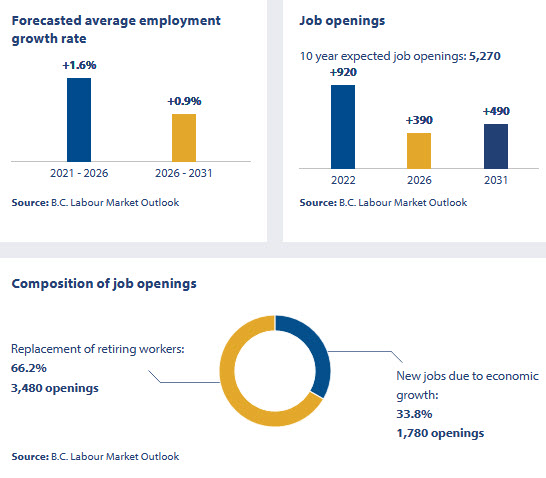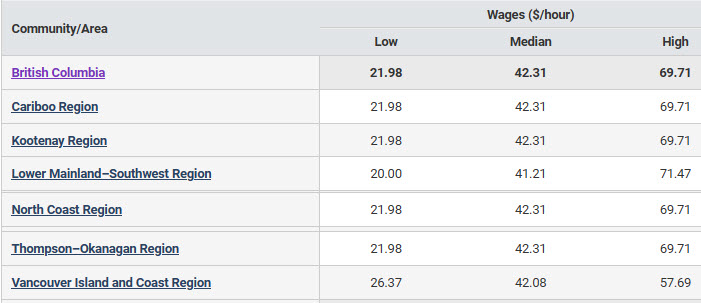Working as an Adult Educator

Industry Overview
Adult educators are in demand in all regions of the province. However, you may find more employment opportunities if you are willing to work in northern and rural regions, especially in speciality areas such as health programs and trades training.
Demand also varies based on your area of specialization. In some fields, such as English, there are a sufficient number of new graduates. There is also increasing demand by businesses for skills-upgrading. This is increasing demand for instructors, particularly in some technical and applied technology fields.
There is a growing trend towards part-time employment and you may not find full-time employment immediately.
In recent years there has been a significant growth in the number of private post-secondary training institutions that provide technical, vocational, and language training. These institutions often offer part-time work and contract positions. Typically, these positions pay less than equivalent positions in the government funded institutions.
Both public and private colleges are increasing online learning options for students. You will be expected to learn the technology associated with this form of instruction.
Source: WorkBC Career Profile for Adult Educator
Job Outlook in BC, 2021-2031

WorkBC provides job openings in BC’s regions from 2021-2031:
| Region | Employment in 2021 | Estimated Annual Employment Growth 2021-2031 | Estimated # of Job Openings 2021-2031 |
| Vancouver Island / Coast | 1,810 | 1.8% | 860 |
| Lower Mainland / Southwest | 9,290 | 0.9% | 3,200 |
| Thompson-Okanagan | 730 | 2.5% | 460 |
| Kootenay | 550 | 2.9% | 380 |
| Cariboo | 300 | 1.3% | 130 |
| North Coast & Nechako | 220 | 1.8% | 110 |
| Northeast | 200 | 2.5% | 120 |
Types of Employers
Adult educators are employed by:
- government-funded colleges and institutes
- private career training schools
- companies
- community and government agencies
Salary
In British Columbia, the median annual salary is $88,202. Your wages are affected by your experience, area of expertise, and place of employment. Unionized instructors at a college usually make more than teachers at private career training schools.
In BC’s regions,Adult Educators can expect to make:

Table from Job Bank Canada Wage Report
Working Hours
You work a variety of hours depending on your work place. Some adult education instructors teach during evenings or weekends. If you work as a corporate trainer you must accommodate the schedules of the workplace. As well, you must be prepared to travel.
Part-time or part-year employment, including session and contract work, is becoming more common.
This occupation offers flexibility in scheduling time for teaching, course preparation, and grading papers and exams. Increased offerings of online courses may also allow you greater scheduling flexibility.
